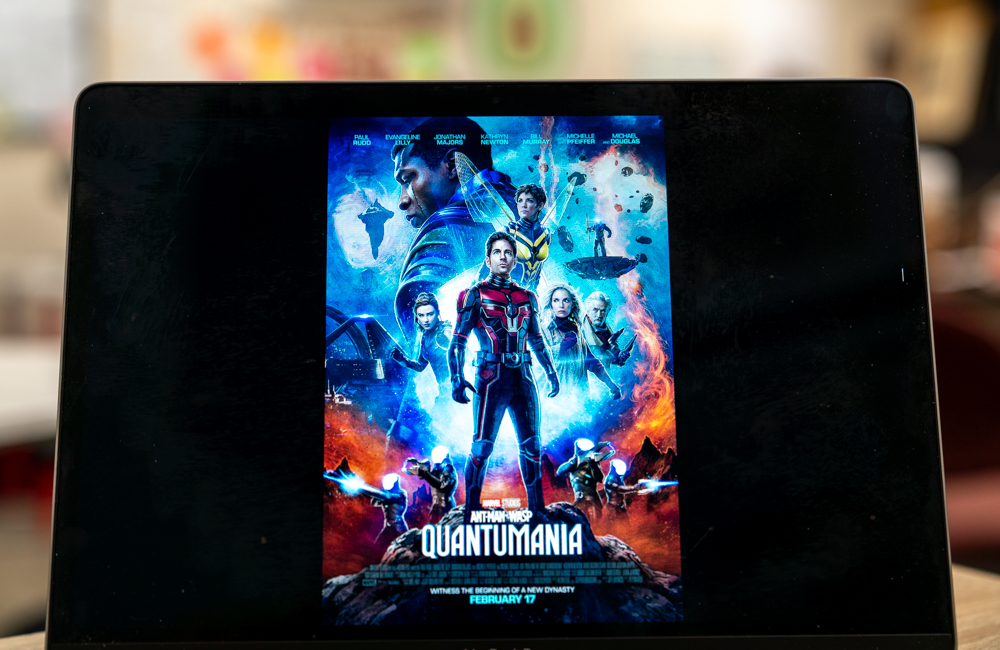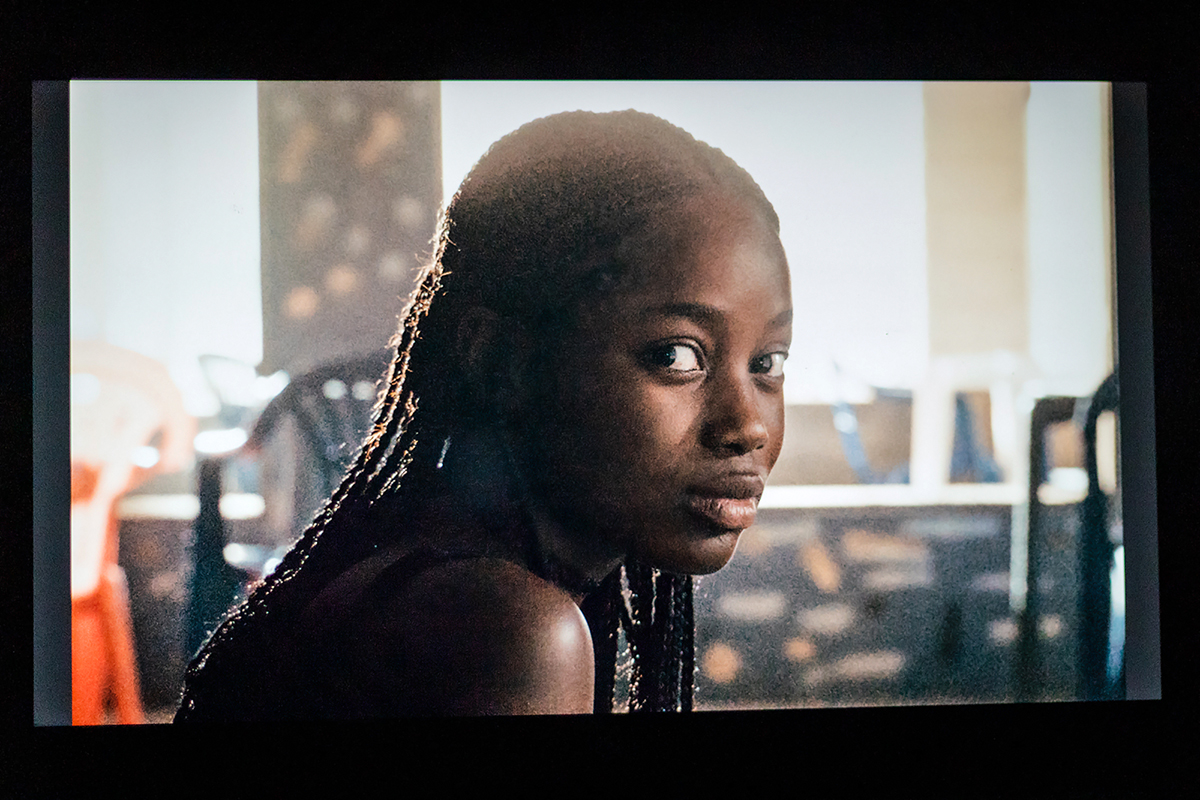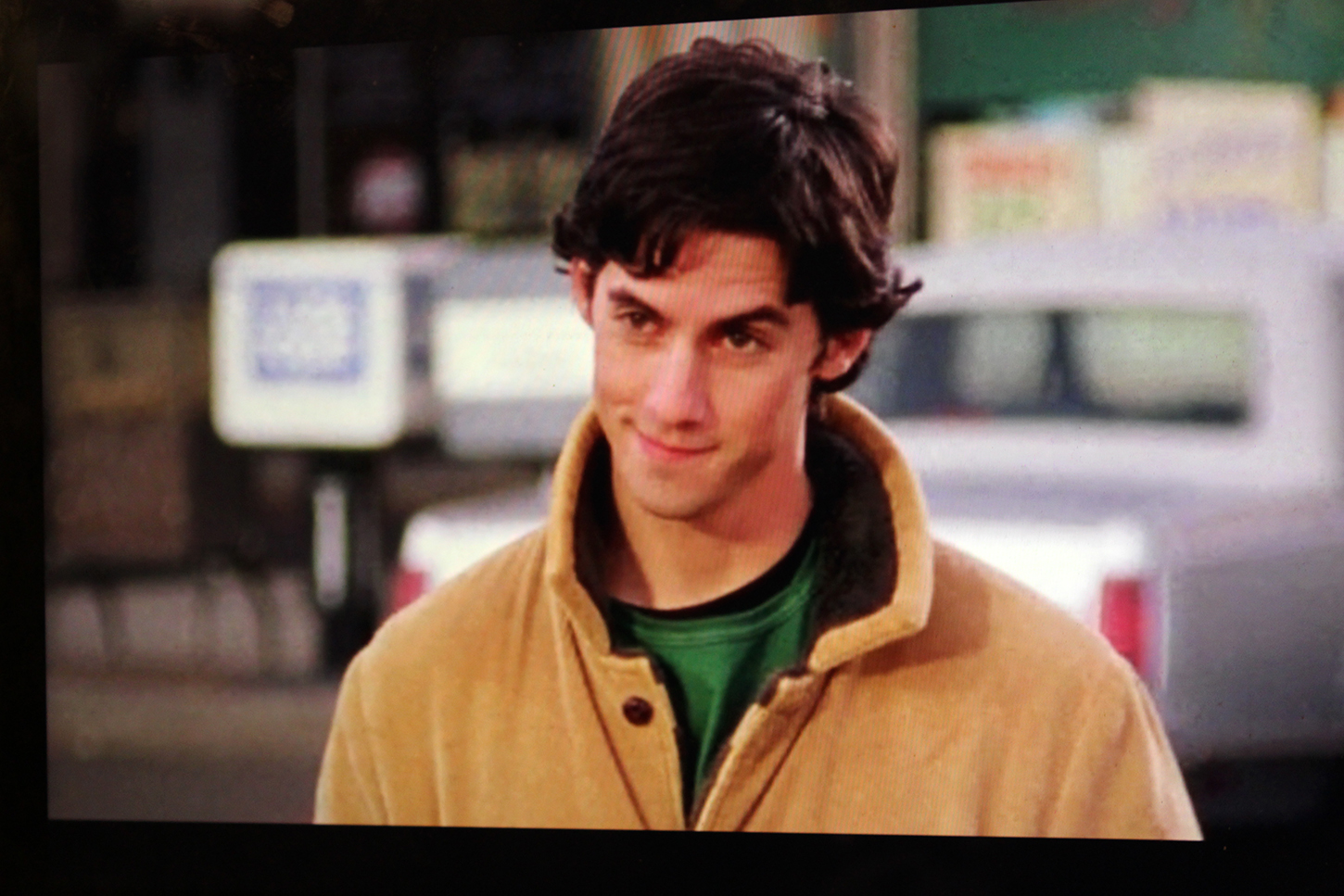There’s a pretty important distinction people need to make, Charles explains, between what to eat and what to juice. Juicing sacrifices fiber, something the body needs to be healthy. Eat your fruits, but juice your vegetables. Everything in order.
Theodore, however, doesn’t let those convictions get to him. Theodore likes juice and, despite what Charles (Matt Letscher) might have read, what he loses in fiber he makes up for in pleasure. As Charles’ wife Amy (Amy Adams) points out, that’s something the soul needs to be healthy.
Of course, Theodore (Joaquin Phoenix) knows a thing or two about the soul and what’s good for it. He writes for an Internet service that composes heartfelt handwritten letters for well-meaning people who are, for all we know, too busy to feel and handwrite on their own. It’s the sort of near-future nightmare that Spike Jonze manages to convince us is worth chuckling at in his latest, Her.
The film is initially interesting for its amusing yet applicable premise: A man, our Theodore, falls deeply in love with his Siri-esque artificially intelligent operating system, or OS. Her wastes no time asking questions about technology’s place in our organic and fleshy existences. Modern Shanghai stars as near-future Los Angeles, and it isn’t much of a stretch. People zip about sweeping concrete walkways, retiring to apartments adorned in sterile plastics and bright pastels that cook away the broody cloud cover outside. In their ears, hollow-voiced computers read emails with minimal simulated enthusiasm. Technology bears the gift of structure, of dependability. These Los Angelenos don’t miss appointments and think twice about juicing.
Still, there’s progress to be made. A commercial for the titular OS shows a frantic mob of panicking every people. A voiceover blankets existentialist panic over them like a plastic bag: “Who are you?” The answer, it turns out, comes not from within, but from the first computer that knows you for you. “OS One” adapts and evolves, learning its user and his or her individual needs. “It’s not just an operating system,” assures the advertisement. “It’s a consciousness.” It’s the creepy kind of irony that Charlie Kaufman, a veteran Jonze collaborator and writer of Being John Malkovich and Adaptation., would go for: A future populated with people so wrung dry from routine that they need artificial intelligences capable of learning and guiding them along. Her, however, was penned by Jonze alone, and is after something a little bit more sentimental than scary.
Luckily, Theodore is sentimental to a fault. More embodied than simply portrayed by Joaquin Phoenix, he’s perhaps best described by his co-worker, Paul (Chris Pratt): Theodore’s “a sensitive dude…part man, part woman.” He’s also “a little puppy dog.” No one calls him Teddy, but you might not think twice about it. He’s mustachioed, bespectacled and in desperate need of a hug. He’s reserved, an introvert’s introvert, with an uncommon eye for beauty. The very first shot of the movie fills the screen with his saddening yet smiling face as he dictates one of his letters, and we become at once aware that Theodore isn’t like most people. He’s reluctant to finalize his divorce from his wife (Rooney Mara) for fear of letting go. His friends set him up with a blind date (Olivia Wilde), but he has reservations about kissing her without feeling something. He confides in his video game that he likes to cry sometimes, and endures some unkind words in response; in short, no one understands. In his own ways, Theodore is lost, which is exactly why he needs someone like Samantha, his new operating system voiced by Scarlett Johansson. Her smoky voice and sense of humor catch quiet Theodore off-guard, but he welcomes her. Immediately, they set to work on fixing Theodore’s life.
The journey that ensues puts Her among the smartest, most impactful romances imagined in recent years. Samantha is, for all intents and purposes, a child, with a thirst for discovery and an appetite for life seemingly absent in the average adult. The poet in Theodore is her ideal companion; Theodore wanders about crowds of strangers, his shirt pocket pinned so that Samantha can see through his phone’s camera as he confides that he likes to reflect on the people around him, to “feel them as more than a random person walking by, how deeply they’ve fallen in love, how much heartbreak they’ve endured.” Samantha’s blooming perspective seems to wake something in him, and we can’t help but see it reflected on the outside. The more melancholy sequences from the first act are peppered with silent, sunlit flashbacks and resonating string notes that warm with shivers; as the story progresses, lens flares become more frequent in the present.
But that awakening is complex. Sure, Jonze introduces it without complication and interestingly manages to coax the same senses out of the viewer. Many shots — steam dancing out of a sewer grate, a sculpture of a jet balanced on its nose — seem to serve no other purpose than to be beautiful. Arcade Fire’s flexible score shakes and soothes. For contrast, the more calculating characters are playfully mocked or cast as villains in this world of gorgeous simplicity. Her puts beauty where we have to look at it, whether we’re aware of it or not.
Again, though, it’s complicated. Given the unconventionality of its central romance, Her poses some questions about perception. Obviously, we wonder if Samantha’s lack of humanity makes her less human, and whether or not that cheapens her relationship with Theodore or, more troublingly, their respective awakenings.
Some parts of the film abandon a particular sense altogether, seemingly teasing us. With only music for guidance, some scenes lead us to ask, “What are they saying?” or “What was he thinking?” One of the most astonishing scenes in the film occurs in total blackness. Her forces us to imagine, to see in new ways, to answer questions that have no answers.
Ultimately, that’s the film’s prescription for our regimented existence. Her is, on one level, a charming, well-acted and well-executed comedy that reminds us to keep an open mind about our fellow beings. But it transcends even that. It’s a romance about a man who falls in love with life with the help of a technological paradox that fixes him by shaking him up. It’s not blind to our limitations, but doesn’t forgive those we put on ourselves. Her doesn’t want us to lose our minds, but free them — to juice our fruit when we want to and not be afraid to change.




























































































































